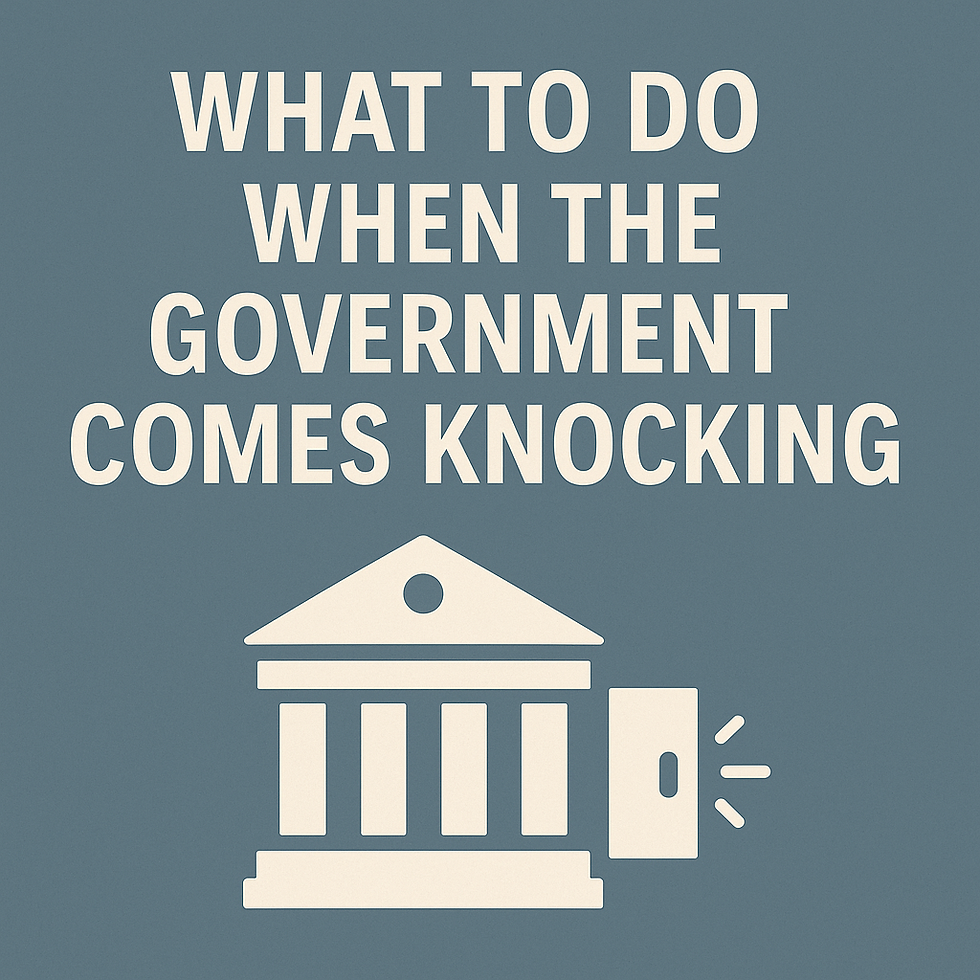What to Do When the Government Comes Knocking
- Dennis Sapien-Pangindian
- Jul 28, 2025
- 2 min read

It’s a moment no business owner wants: a federal agent at the door, a subpoena in hand, or a call from in-house counsel announcing an internal audit that could reveal serious problems. Whether it’s the Department of Justice, the SEC, a state attorney general, or simply your own compliance team uncovering red flags, knowing what to do next is critical.
Stay Calm, Get Counsel
The first rule: don’t panic—and don’t wing it. Government investigations can stem from whistleblower tips, customer complaints, or routine audits. What seems minor at first may escalate quickly. Before you speak to anyone or hand over documents, contact an attorney experienced in regulatory and white-collar matters. Legal counsel can manage communications, preserve privileges, and help assess the scope of risk.
Preserve Evidence Immediately
Once you learn of a pending investigation, preserve all relevant documents, emails, texts, and files. That includes paper records and electronically stored information. Tell employees not to delete, alter, or destroy anything. Implementing a litigation hold—under your lawyer’s direction—is not just smart, it’s often legally required.
Control the Narrative Internally
If employees learn about an investigation through rumor or media, fear and confusion can spiral. Leadership should coordinate with counsel to communicate clearly and appropriately. Avoid speculation and emphasize cooperation with the legal process. Do not retaliate against any whistleblower or potential witness.
Engage with the Government Thoughtfully
Through your legal team, open a channel of communication with the investigating agency. Timely, respectful, and informed engagement can set the tone for the entire investigation. Ask what the government is seeking, clarify deadlines, and explore whether the scope of the request can be narrowed. Always let your attorney do the talking—direct communication without counsel may inadvertently expose your business to greater risk.
Conduct an Internal Review
Sometimes the best offense is a thorough internal review. Your legal team can help investigate the underlying issues, assess the strength of any allegations, and prepare you for what’s ahead. This might include interviewing staff, reviewing contracts, or re-examining internal policies. Early insights can shape your legal strategy and signal good faith to regulators.
Know the Consequences—and the Options
Investigations can lead to civil penalties, criminal charges, or reputational harm. But with prompt, smart action, businesses often negotiate favorable outcomes, avoid charges, or limit damage. Cooperation, transparency, and legal strategy matter.
Final Thought
When the government comes knocking, the clock starts ticking. Fast, informed decisions can protect your company’s future. Investigations aren’t just about past conduct—they’re a test of how you lead under pressure.
This blog is for informational purposes only and is not legal advice. But if your business faces scrutiny, knowing your next step may be your most important one.




Comments